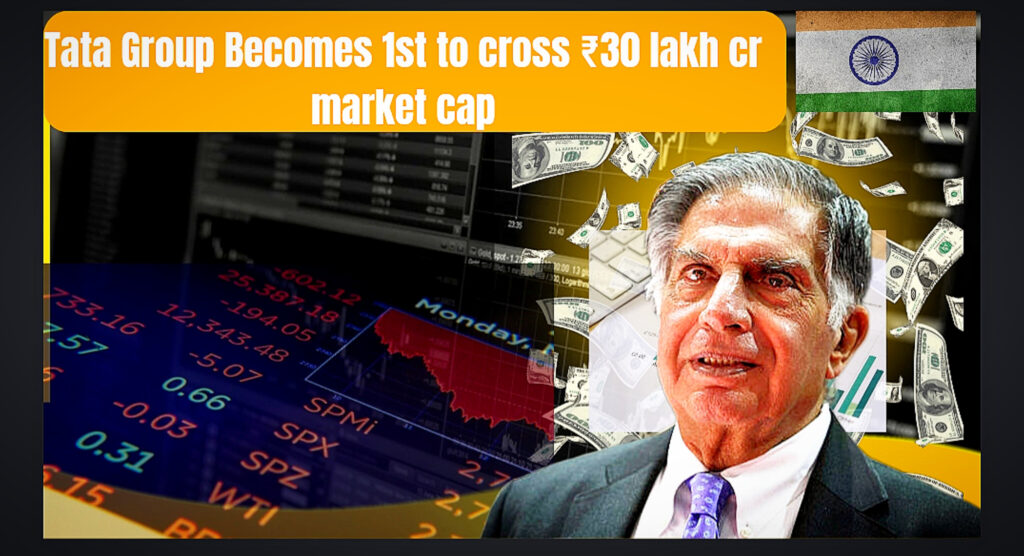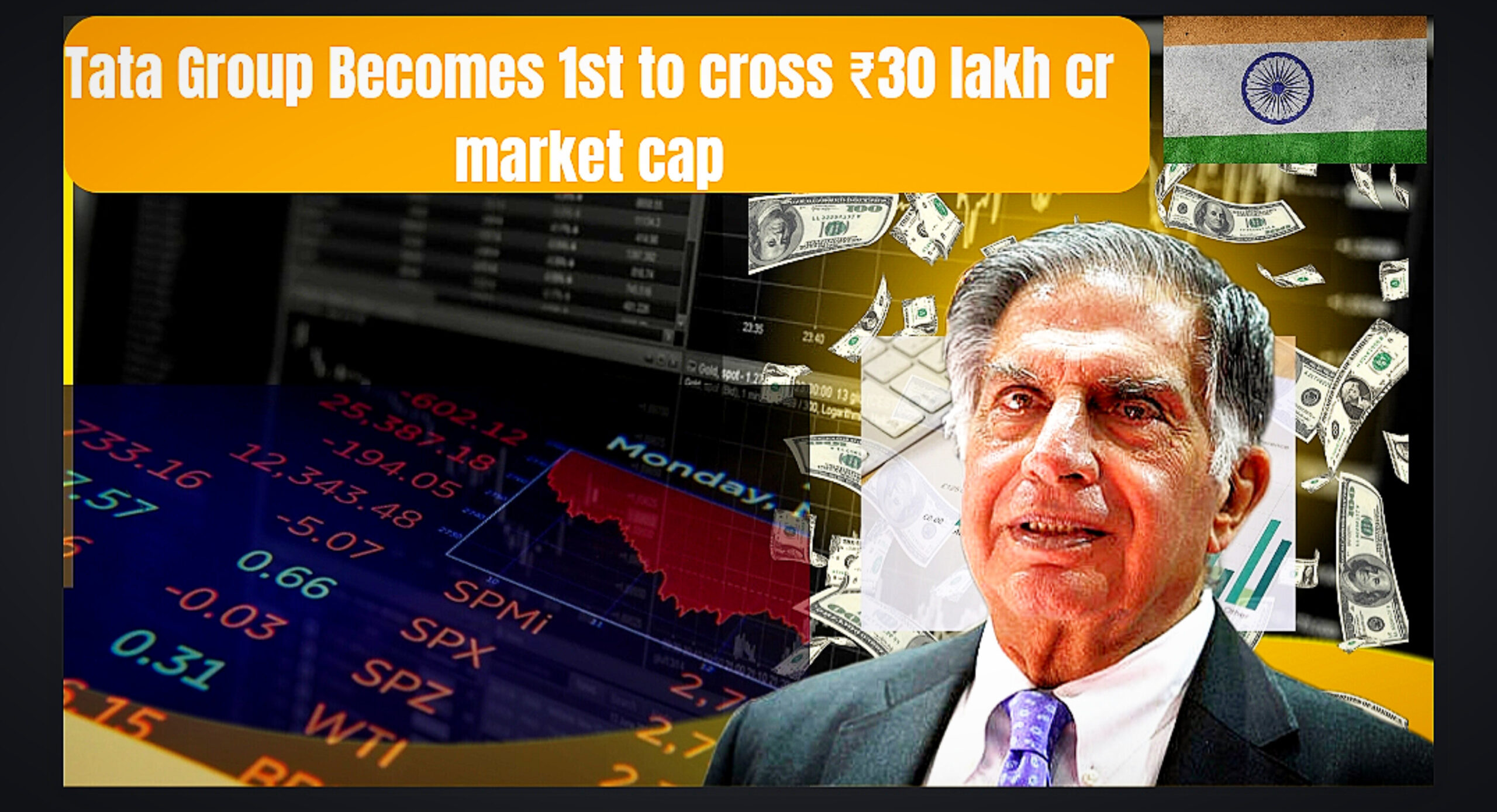Tata Group Scales New Heights: First Indian Conglomerate to Cross ₹30 Lakh Crore Market Cap

The Tata Group, India’s iconic conglomerate, has etched its name in history by becoming the first Indian company to achieve a market capitalization of over ₹30 lakh crore (US$367 billion). This remarkable feat was achieved on February 6, 2024, solidifying the group’s position as a titan of Indian industry.
This achievement can be attributed to several factors, including:
- Strong performance of key subsidiaries: The stellar performance of companies like Tata Consultancy Services (TCS), Tata Motors, Tata Power, and Indian Hotels significantly contributed to the group’s overall market cap. TCS, the crown jewel of the group, crossed the ₹15 lakh crore mark for the first time, reflecting investor confidence in its future prospects.
- Market rally: The Indian stock market has witnessed a positive trend in recent times, further propelling the market cap of Tata group companies.
- Diversified portfolio: The group’s presence across diverse sectors, from IT and automobiles to steel and consumer goods, provides stability and mitigates risk, attracting investors seeking long-term value.
This milestone signifies a significant moment for the Indian economy, showcasing the potential of domestic companies to compete on a global scale. The Tata Group’s success story serves as an inspiration for other businesses, highlighting the importance of innovation, strategic vision, and a commitment to excellence.
Looking ahead, the Tata Group’s journey is far from over. With its continuous focus on expansion, innovation, and sustainability, the group is well-positioned to maintain its leadership position and further contribute to the nation’s economic growth.
The Power of Many: How Prominent Tata Companies Contribute to the Group’s Legacy
Beyond the towering presence of Tata Consultancy Services (TCS), several other prominent Tata companies have significantly contributed to the group’s overall success:
- Tata Motors: A leading automotive manufacturer, Tata Motors has played a crucial role in revolutionizing the Indian automobile industry. From launching the iconic Indica, India’s first indigenous passenger car, to acquiring global brands like Jaguar Land Rover, they have consistently pushed boundaries and established a strong brand presence both domestically and internationally.
- Tata Steel: As one of the world’s largest steel producers, Tata Steel is a vital contributor to the group’s revenue and global footprint. Their commitment to innovation and sustainability has earned them recognition as a leader in the steel industry.
- Titan Company: A renowned jewelry brand, Titan has transformed the Indian jewelry market by introducing transparency, trust, and innovative designs. Their success story exemplifies the group’s ability to excel in diverse sectors beyond core industries.
- Indian Hotels Company Limited (IHCL): The Taj Group, owned by IHCL, is synonymous with luxury hospitality in India. Their iconic hotels and resorts not only contribute significantly to the group’s revenue but also showcase India’s rich heritage and hospitality to the world.
- Tata Consumer Products: This company houses popular household brands like Tata Salt, Tetley tea, and Tata Sampann. Their widespread presence in essential consumer goods ensures consistent revenue streams and strengthens the group’s brand recognition across diverse demographics.
These are just a few examples, and numerous other Tata companies, each with its own unique contribution, have collectively propelled the group to its current stature. Their combined strengths in diverse sectors, coupled with shared values and strategic vision, have fostered a synergy that has been instrumental in the group’s remarkable success.
F&Q
- Which of the following is the first Indian company to achieve a market capitalization of over ₹30 lakh crore?
- a) Reliance Industries
- b) Adani Group
- c) Tata Group
- d) Infosys
- What is the primary reason behind the Tata Group’s recent surge in market cap?
- a) Acquisition of a major competitor
- b) Launch of a revolutionary new product
- c) Strong performance of key subsidiaries like TCS
- d) Global economic boom
- What sector does the Tata Group NOT have a significant presence in?
- a) Information Technology
- b) Automobiles
- c) Consumer Goods
- d) Aerospace
- What is a key factor contributing to the stability and risk mitigation of the Tata Group?
- a) Reliance on a single flagship product
- b) Focus on short-term profits
- c) Diversified portfolio across various industries
- d) Limited international presence
- What does the Tata Group’s success story highlight for other businesses?
- a) Importance of focusing on a single core competency
- b) Prioritizing cost-cutting measures over innovation
- c) Importance of innovation, strategic vision, and excellence
- d) Reliance on government support for growth
